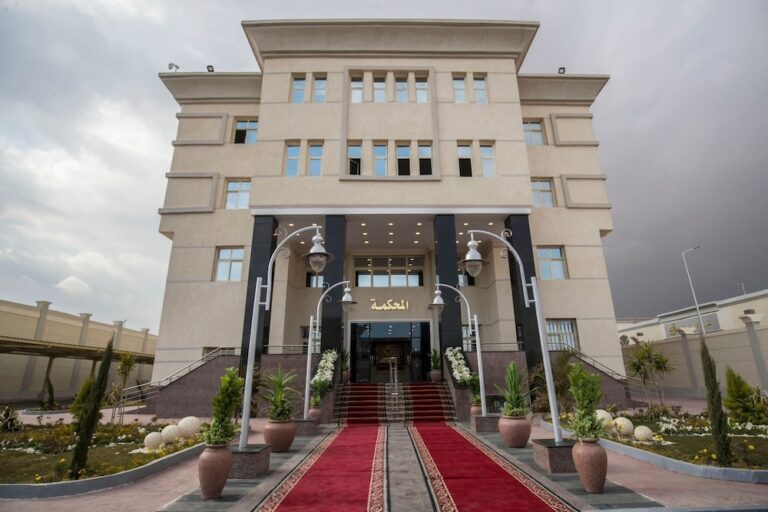(RSF/IFEX) – Several journalists were attacked by police officers during the repression of anti-war demonstrations in Cairo on 20, 21 and 22 March 2003, which saw approximately 800 people arrested. “We call on the Egyptian authorities to allow Egyptian and foreign journalists to exercise their job. The events taking place in Egypt today are particularly […]
(RSF/IFEX) – Several journalists were attacked by police officers during the repression of anti-war demonstrations in Cairo on 20, 21 and 22 March 2003, which saw approximately 800 people arrested.
“We call on the Egyptian authorities to allow Egyptian and foreign journalists to exercise their job. The events taking place in Egypt today are particularly worrisome. Journalists should be in a position to cover them without fearing for their safety,” said RSF Secretary-General Robert Ménard.
On 20 March, in the late afternoon, while the police were charging at demonstrators in front of the American University, in downtown Cairo, several journalists covering the scuffles were also targeted. A journalist working for state television had to flee to the seventh floor of a building to escape the charging police officers. His cameraman was injured, probably by a truncheon blow, and had to receive several stitches. His camera was also damaged.
On 21 March, the day of the largest downtown demonstration, a cameraman from the Qatar-based satellite station Al Jazeera was struck by police officers entering the premises of the lawyers’ society, which was holding a meeting. Lena El Ghadban, the station’s journalist, preferred to hand over her bag and her camera rather than also face an assault at the hands of police. Other journalists were also said to have been attacked on this day marked by the most severe repression.
On 22 March, in the early afternoon, Hossam El Hamalawy, a stringer with the “Los Angeles Times”, was arrested by five plainclothes police officers while leaving a restaurant on Tahrir Square in downtown Cairo, where he was having lunch with two colleagues. Although he told them he was a journalist, the men confiscated his press card, the battery of his mobile phone and his identification card. He was then taken, together with youths rounded up during the day, to the Gamaleya police station. There, their fingerprints and photographs were taken and the words “dangerous criminals” were written on the photographs. In the evening, El Hamalawy was transferred to the State Security headquarters, where he was blindfolded. An officer who had interrogated him said he did not know he was a journalist. He told him his detention was a “mistake.” Yet the journalist still had to sign a statement saying he would not participate in “any riot causing the destruction of public or private property.” The journalist was released at around 2:00 a.m. (local time). During a demonstration in Cairo on 20 March, he had been violently struck with wooden truncheons by police officers.


